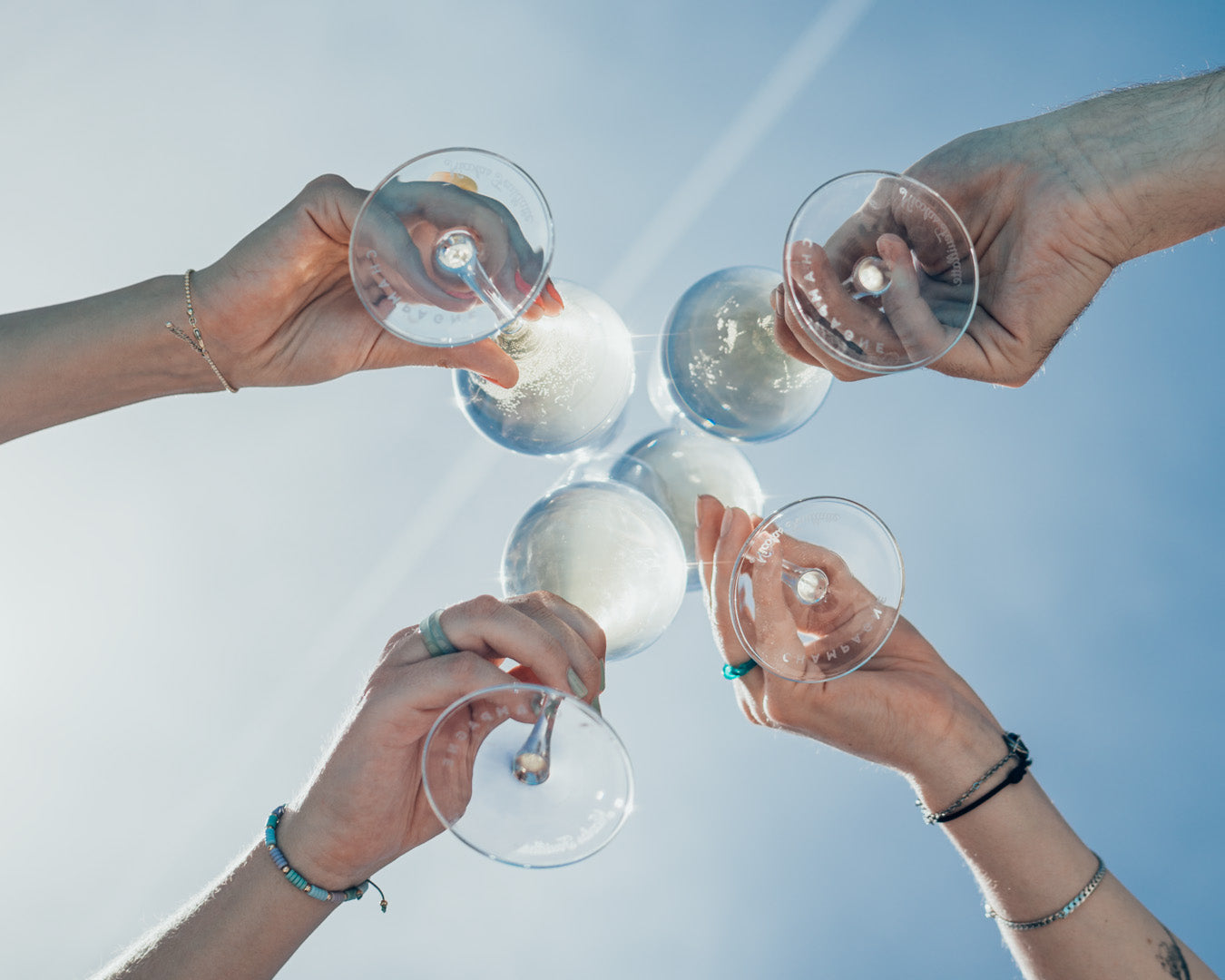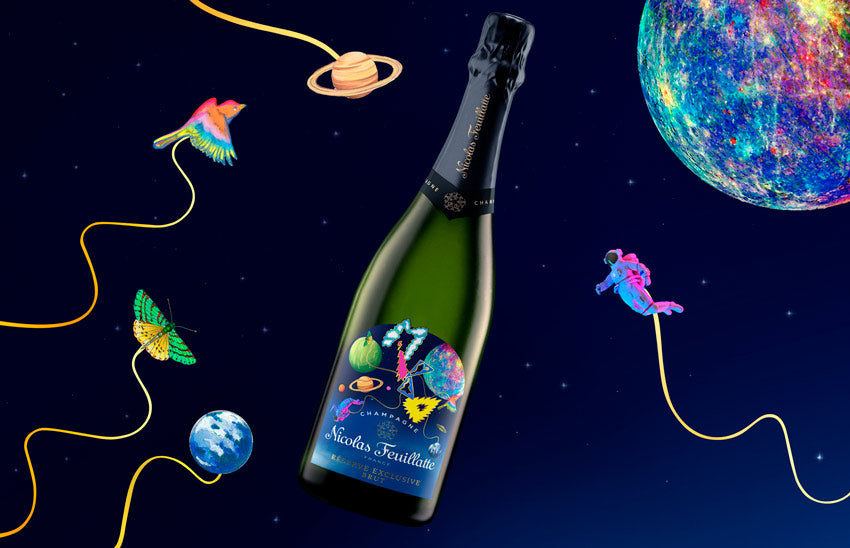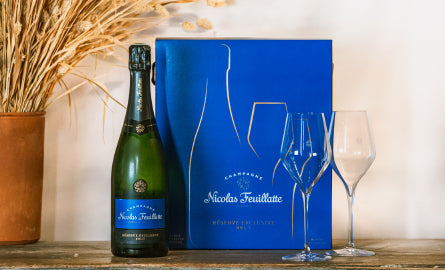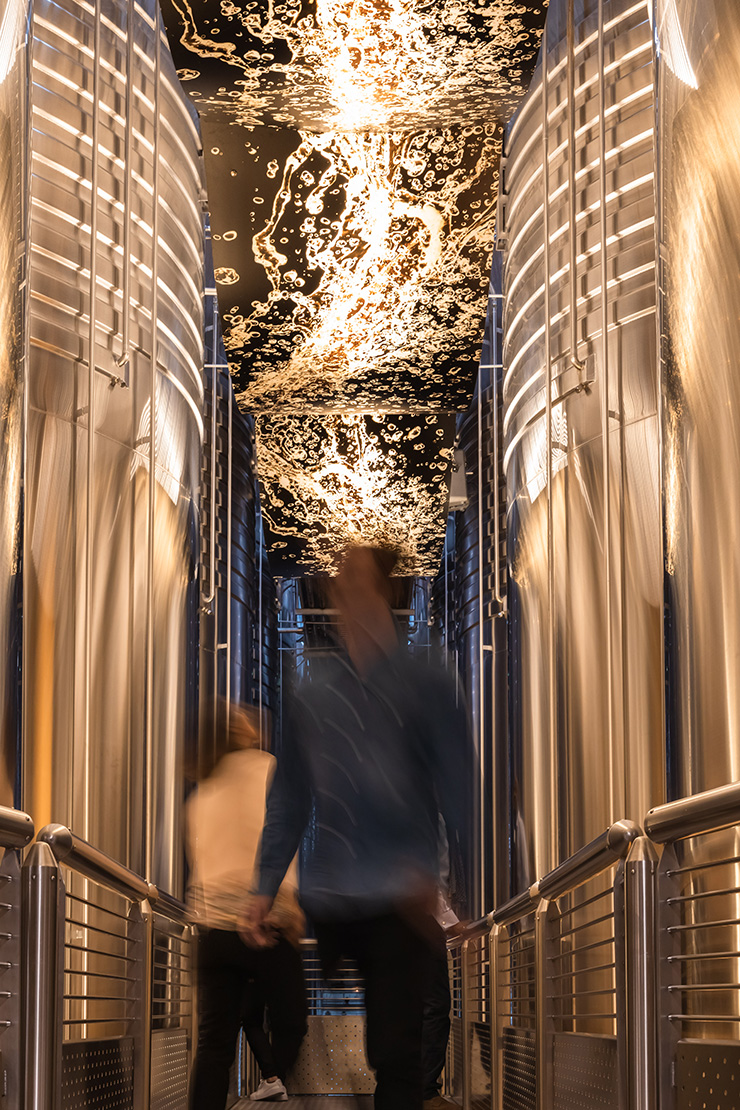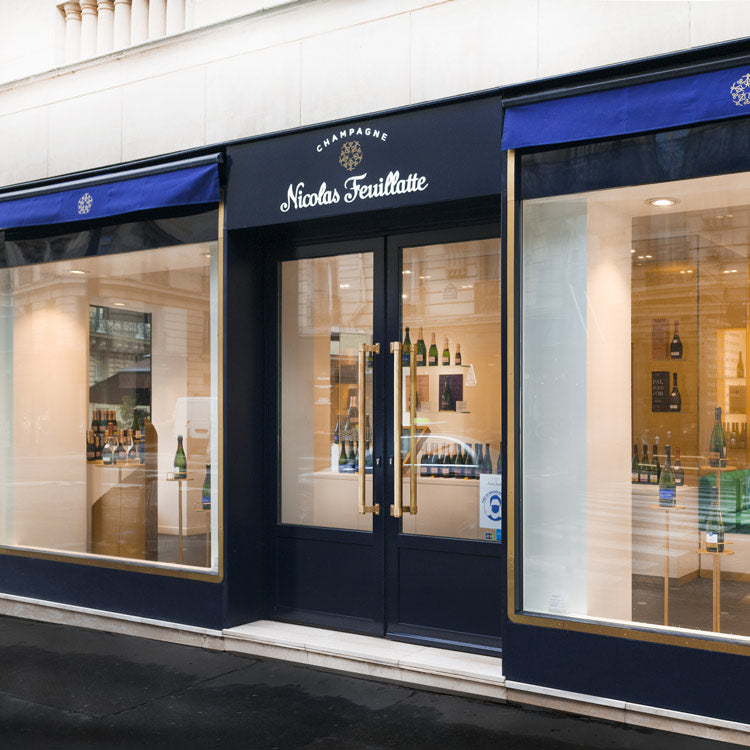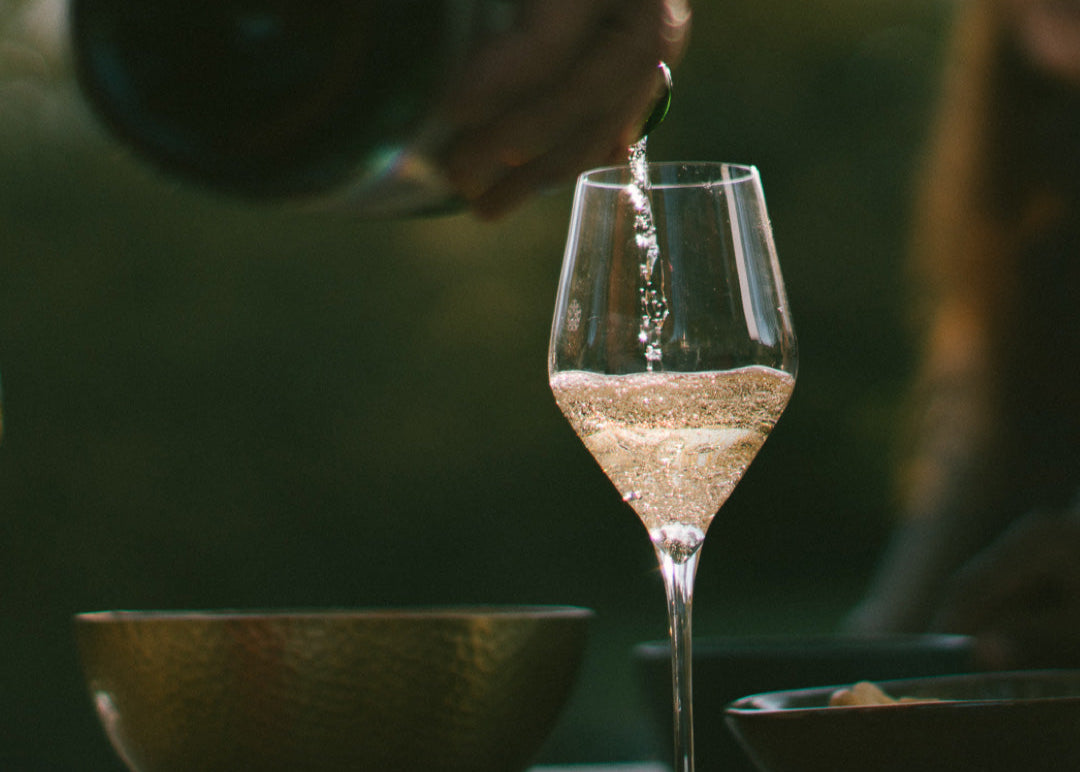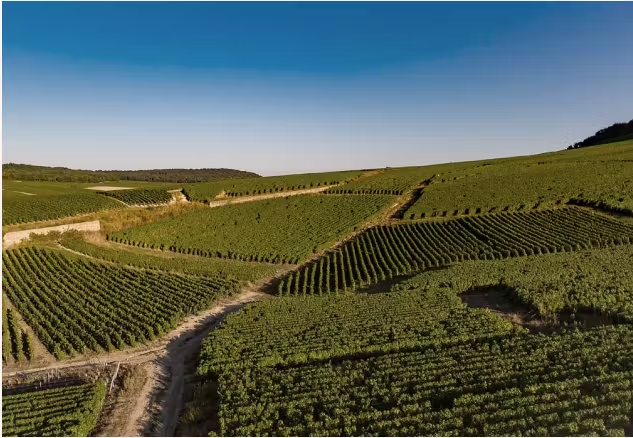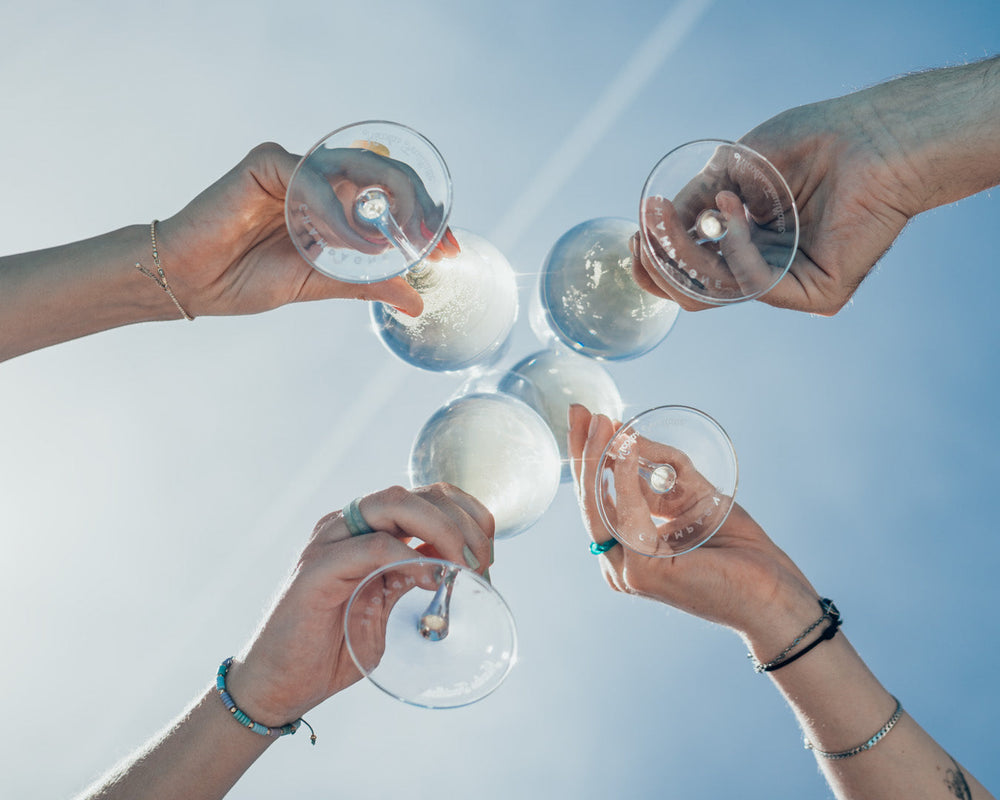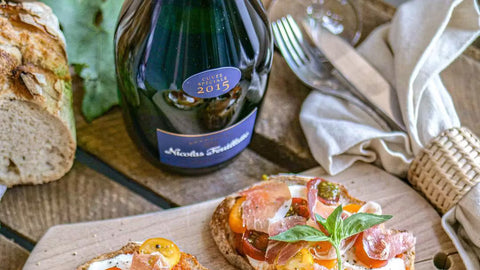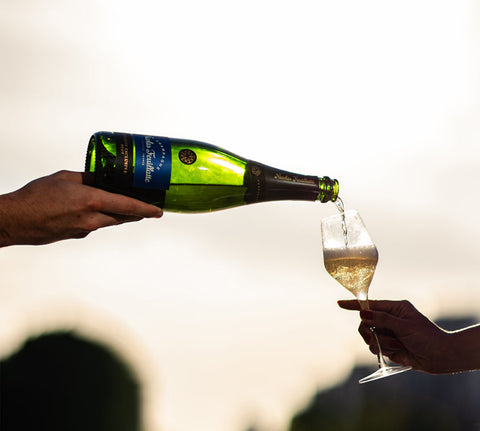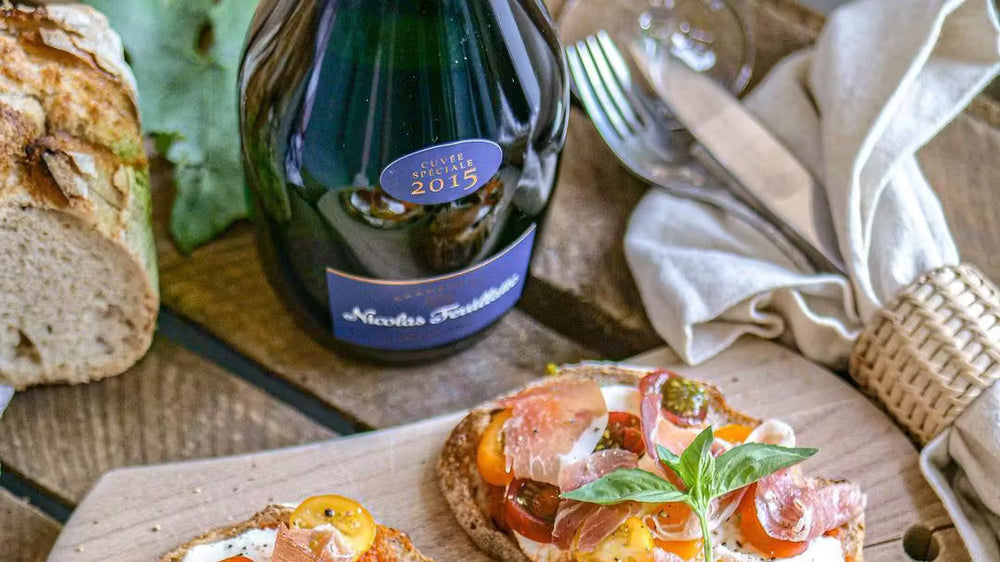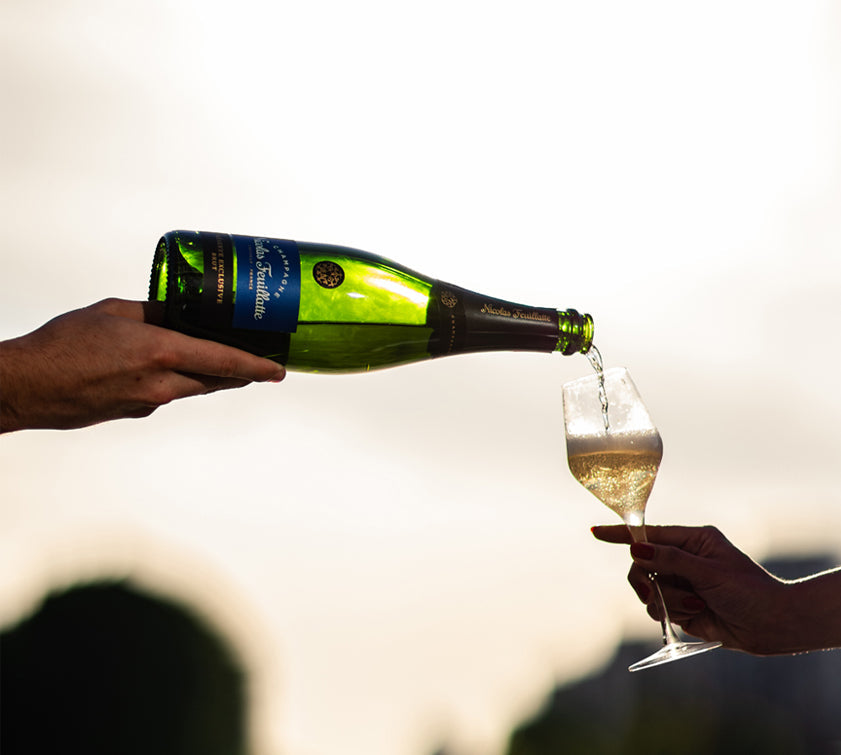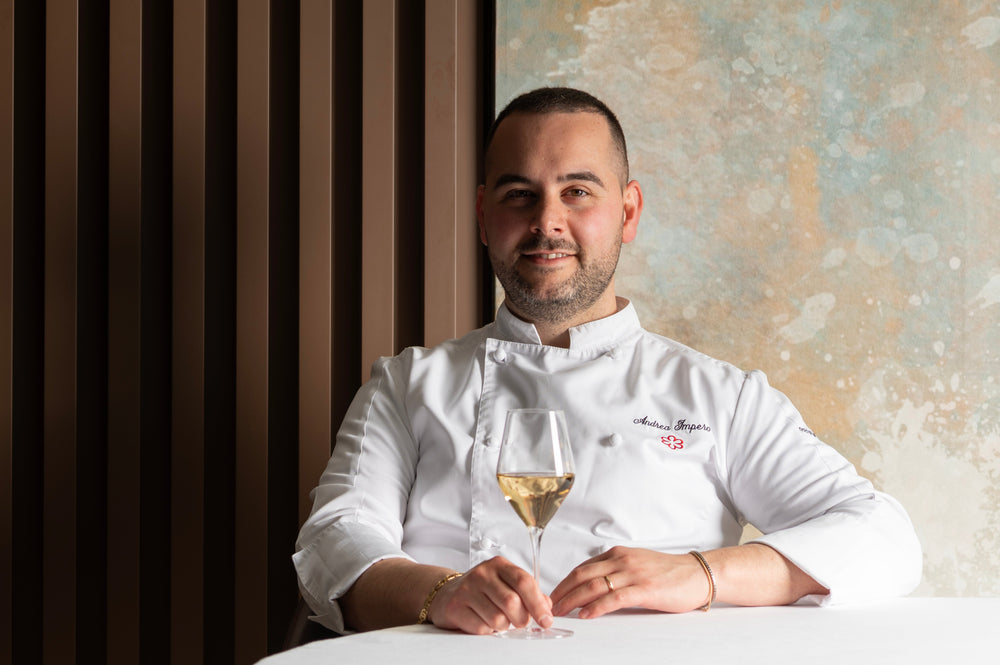Have you ever wondered how many glasses a bottle of champagne contains? Discover the answer and the factors that influence the number of flutes served: glass size, effervescence, and tips for measuring the right amount at your receptions.
If you want to host with dignity, you must perform the champagne service according to the rules of the art. First and foremost, you must ensure that you have the correct number of bottles. Maison Nicolas Feuillatte provides information on how many glasses each of the main bottle sizes contains. Armed with this information and our advice on the recommended number of glasses per guest, you can't go wrong!
Determine the number of glasses according to the size of the champagne bottle
How many flutes can you serve with your bottle of champagne? The answer lies in the bottle's size. Among the most common sizes, here are the number of glasses you can offer your guests:
- A quarter bottle of champagne (20 cl) > 1 to 2 glasses,
- Half bottle (37.5 cl) > 3 glasses,
- The classic bottle format (75 cl) > 6 glasses,
- The Magnum (150 cl) > 12 glasses,
- The Jeroboam (3 liters) > 24 glasses.
Except for the quarter of champagne, the size of the bottle does not impact the average capacity of a glass , which remains approximately 12.5 cl. When serving, it is essential not to fill the entire glass, in order to be able to enjoy the aromas. We recommend not filling more than two-thirds of the chosen container, for optimal tasting.

How many bottles of champagne should you plan for your guests?
It's not easy to know how many glasses to serve... The context and the profile of the guests should guide your choice.
For a dinner with friends, we can go for 4 flutes of champagne per person*, if of course it is the only alcoholic drink served during the meal. Meaning one glass per course as part of a complete meal (aperitif – starter – main course – dessert). The key is to strike the right balance – you don't want to go overboard, which is exactly what serving a quality champagne shouldn't be doing.
When hosting a large reception, the dosage can become tricky. A large reception refers to events such as birthdays, christenings, or corporate seminars. If champagne is the only drink on offer, you should plan on having 4 glasses per person. Then, simply apply a simple formula to estimate the number of standard bottles needed:
[Number of guests x 4 glasses x 12.5 cl] / 75 cl]

For safety reasons, it is wise to keep a few extra bottles to deal with unforeseen circumstances.
In the specific case weddings, the question of the reception drink comes into play. For this event within the event, we suggest going for one bottle for 3 people, which corresponds to two glasses for each guest. If for the rest of the meal you want to stick exclusively to a sparkling wine, we then find ourselves in the same situation as the "dinner with friends".
* Please note, if you or your guests are driving, you shall not exceed a maximum of 2 drinks!
The different formats offered by Nicolas Feuillatte
Maison Nicolas Feuillatte offers several formats to satisfy all desires.
- The quarter bottle, the smallest existing format (20 cl), for a solitary tasting,
- The half bottle (37.5 cl), for special moments for two,
- The classic bottle format (75 cl), an iconic form of the French art of living,
- The Magnum (150 cl), to share during your most memorable festive events.
Find all of our champagnes available in our online store.
Is it true that Champagne is better in Magnum?
It is often said that the best bottle size for Champagne is the magnum: but is this just a legend?
Although the bottle is the most common format and perfectly suited to Champagne wines, it is true that the magnum is renowned for its ability to allow the cuvée to best develop its aromas and reveal its complexity.
During large celebrations, this format always makes an impression on your guests.
Furthermore, the magnum (but also all large formats) are less subject to temperature variations since it takes longer to heat or cool a (very) large bottle.
Finally, the amount of air between the cork and the wine is less in a magnum bottle, making it less prone to micro-oxidation, which can occur over time.
Did you know? On our online store, we offer you the iconic Exclusive Reserve Brut from quarter bottle to Jeroboam !
